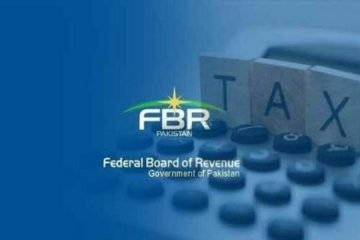Taxes are the lifeblood of any nation, funding essential public services and infrastructure. This comprehensive guide aims to demystify salary taxation in Pakistan, covering everything from the basis of taxation to strategies for potential tax optimization and verification of tax payments.
Receipt Basis of Salary Taxation
In Pakistan, salary taxation operates on a receipt basis. This means that income is taxed in the year it is received, not necessarily when it is earned. For instance, if you earn salary in Tax Year 2024 but receive a portion of it in Tax Year 2025, it will be taxed in Tax Year 2025 when you actually receive the payment. However, recognizing potential unfairness in scenarios like receiving arrears, the tax law allows employees to approach the Commissioner to apply for taxation at the previous year’s rates for such arrear payments. However, there are some exceptions;
- Conditions for Retroactive Taxation: If a private company pays an employee salary for services rendered in a previous tax year, and this salary was not included in the employee’s taxable income for that year, the Commissioner may include it in the employee’s income for that earlier year. However, the Commissioner must have reasonable grounds to believe that the payment was deferred.
- Tax Implications: The deferred salary will be taxed in the original tax year in which the services were rendered, not in the year of payment. This can have significant implications for both the employee and the company.
Taxation for Resident and Non-Resident
As a Pakistani taxpayer, understanding the taxation of your income is essential to ensure compliance with the law and avoid any legal issues. When it comes to salary income, the treatment of taxation varies for resident and non-resident persons.
- Resident Persons:For resident persons, any and all income earned by them, whether through physical or online channels, is taxable in Pakistan. This includes salary income earned from employment under an employment contract. Therefore, if you are a resident Pakistani earning salary income, you are required to pay taxes on that income.
- Non-Resident Persons:For non-resident persons, only the income earned from a Pakistan source is taxable. This means that if you are a non-resident Pakistani earning salary income from a foreign employer, that income is exempt from tax in Pakistan. However, tax may be deducted at source by the country where the income is earned and duly submitted to the relevant government. Even if that income from salary is sent into Pakistan, it will still be exempt from tax in Pakistan.
Federal or provincial government employees designated abroad are treated as residents for payment of tax purposes, despite not physically staying in Pakistan for the relevant tax year. Hence, their salary income is taxable in Pakistan.
Salary Tax Rates for 2025
Here’s a breakdown of the salary tax rates in Pakistan for the tax year 2024-25, effective from July 1, 2024, to June 30, 2025:
| Annual (Taxable) Salary (Rupees) | Tax Rate (2025) |
|---|---|
| Upto 600,000 | 0% |
| 600,000 – 1,200,000 | 5% of the amount exceeding Rs. 600,000 |
| 1,200,000 – 2,200,000 | Rs. 30,000 + 15% of the amount exceeding Rs. 1,200,000 |
| 2,200,000 – 3,200,000 | Rs. 180,000 + 25% of the amount exceeding Rs. 2,200,000 |
| 3,200,000 – 4,100,000 | Rs. 430,000 + 30% of the amount exceeding Rs. 3,200,000 |
| Above 4,100,000 | Rs. 700,000 + 35% of the amount exceeding Rs. 4,100,000 |
Components of Taxable Salary
Your taxable salary in Pakistan encompasses more than just your basic pay. It includes various components, some of which are directly taxable while others have specific valuation rules:
- Performance and Incentive Bonuses: Bonuses, especially those tied to performance or sales targets, are treated as an integral part of your salary income. Any bonus stipulated within your employment contract is taxed at the same income tax rates applicable to your salary.
- Commission: Similar to bonuses, commissions earned under an employment agreement are considered salary income. This means your commission earnings are combined with your regular salary, and the total sum is subjected to income tax based on your applicable tax slab.
- Allowances and Benefits: Adding Value, and Tax
Employers often provide allowances and benefits to enhance employee compensation packages. While beneficial, these perks are generally taxable unless specifically exempted. Key allowances and benefits and their tax implications include:
Accommodation: If your employer provides you with housing, a significant portion of its value is added to your taxable income. This taxable value is calculated as the higher of:
- 45% of your Market Trading Salary (MTS) or Basic Salary.
- The market rent the employer would have incurred to rent a similar accommodation.
- Special Case: House Rent Allowance (HRA): If you receive a separate House Rent Allowance that is 30% of your basic salary, the taxable value of provided accommodation can be reduced to a minimum of 30% of your basic salary instead of the usual 45%.
Allowances (Cash): Any allowance you receive in cash is generally taxable, unless it is demonstrably and strictly intended for official duties and expenditure.
Leave Encashment: Payments received in lieu of unutilized leaves (leave encashment) are considered taxable income and will be added to your salary income for tax calculation.
Transportation: The tax implications of company-provided vehicles depend on usage:
- Part Personal, Part Official Use: If you use the vehicle for both work and personal travel, the taxable value is a modest 5% of the vehicle’s cost (if purchased) or its fair market value at the lease commencement (if leased).
- Solely Personal Use: If the vehicle is exclusively for your personal use, the taxable value is higher at 10% of its cost (if purchased) or its fair market value at lease commencement (if leased).
Tax on Loan from Employer in Pakistan
Employer-provided loans can also have tax consequences in Pakistan, especially regarding interest:
- Loans up to PKR 1 Million: Loans from your employer up to PKR 1 million are not considered taxable income.
- Loans Exceeding PKR 1 Million (Interest-Free): For loans exceeding PKR 1 million and provided interest-free, the Federal Board of Revenue (FBR) establishes a benchmark interest rate annually. The imputed interest based on this benchmark rate for the period the loan remains outstanding is added to your taxable income.
- Loans with Reduced Interest Rates: If your employer charges a reduced interest rate (lower than the FBR benchmark rate), the difference between the benchmark rate and the charged rate is added to your taxable income. For example, if the benchmark is 10% and your employer charges 2%, the 8% difference is considered a taxable benefit.
Deductions from Salary Income
While generally, deductions from salary income are limited, Pakistani tax law allows for a few key exceptions that can reduce your taxable income:
- Zakat: Payments made strictly under Zakat and Shariah laws are deductible from your taxable salary. Ensure proper documentation for these payments.
- Education Deduction: Employees with an annual taxable income of up to PKR 1.5 million can claim a deduction for their children’s education expenses. Either parent paying the tuition fees can claim this deduction. You must provide your National Tax Number (NTN) and the educational institution’s name to claim this. Note that this deduction cannot be carried forward to the next tax year. The deductible amount is capped at the least of the following:
- 25% of your taxable income.
- 5% of your total tuition fees paid.
- An amount calculated as PKR 60,000 multiplied by the number of your children.
- Medical Allowance Exemption: You can claim a tax-deductible medical allowance of up to 10% of your basic salary. Discuss this with your employer to structure your salary slip appropriately and claim this exemption.
- Provident Fund (PF) Interest: Interest earned on your Provident Fund contributions is tax-exempt up to 16%.
- Food Expenses: Expenses you incur on meals at restaurants or food outlets offering subsidized food rates may be tax-deductible. Similarly, educational expenses at institutions offering education at reduced rates can also be deductible.
- Pension and Gratuity: Payments received as approved pension and gratuity are tax-exempt, providing significant relief upon retirement.
- Motor Vehicle Expenses (Business Use Only): If you use a motor vehicle exclusively for business purposes, the related expenses are deductible. Maintain meticulous records to support this claim.
- Special Tax Considerations
- Teachers and Researchers: Recognizing their vital role, full-time teachers and researchers in non-profit organizations, government institutions, or institutions recognized by the Higher Education Commission (HEC) of Punjab or the Federal HEC receive a 25% reduction in their taxable salary. This serves as a tax incentive for professionals in the education sector.
- Income from Multiple Sources: If your income originates from various sources, salary taxation rules become dominant if at least 75% of your total income comes from salary. If salary income is less than 75%, your tax will be assessed based on the different applicable heads of income relevant to your diverse income sources.
It’s important to note that deductions for interest or profit payments on housing loans(both conventional and Islamic banking) have been abolished. These payments no longer qualify for tax deductions.
How to Calculate Tax on Salary?
To calculate your tax liability on income from salary in Pakistan, you can use the following steps:
- Determine Your Gross Annual Salary: This includes your basic salary, allowances, bonuses, and other income.
- Calculate Taxable Income: Subtract any tax exemptions and deductions from your gross annual salary.
- Identify the Applicable Tax Slab: Based on your taxable annual salary, determine the relevant tax slab from the table above.
- Apply the Tax Rate: Apply the corresponding tax rate to your taxable income.
- Calculate Tax Liability: Multiply the taxable income by the tax rate to determine your total tax liability.
- Tax Reduction:�If you are allowed with any tax-reduction, as listed above, remove that from your total tax liability.
Salary Tax Calculations
If your annual taxable salary is Rs. 1,500,000, you fall into the second tax slab. Your tax liability would be:
- Rs. 30,000 + 15% of (Rs. 1,500,000 – Rs. 1,200,000) = Rs. 75,000
To simplify the tax calculation process, we’ve created a free salary tax calculator. Simply input your annual taxable salary, and the calculator will automatically determine your tax liability.
How to Verify Tax Deducted from Salary?
In Pakistan, employers are responsible for withholding income tax from your salary and depositing it with the government. As a taxpayer, you have the access to verify if these deducted taxes are indeed being paid to the Federal Board of Revenue (FBR).
Registered Taxpayers (IRIS Portal Users):
- Log in to your IRIS account using your credentials.
- Navigate to the “MIS” tab within the portal.
- Locate the “Payment Details” section under the MIS tab.
- This section provides a comprehensive record of all tax payments made under your National Tax Number (NTN), including those deducted from your salary by your employer.
Non-Registered Taxpayers:
- Request a “Tax Deduction Certificate” (TDC) from your employer. Employers are legally obligated to provide this certificate at the end of the financial year (June 30th).
- The TDC will detail the total amount of tax deducted from your salary throughout the financial year.
Employer’s Obligations: Employers are legally bound to deposit all withheld taxes to the government within 15 days of deducting them from your salary.
If you have concerns or suspect errors in your tax deductions, contact your Accounts/HR department for clarification.
Adjusting Tax with Empoloyer
Form 3 is a valuable tool for Pakistani taxpayers to adjust advance tax with employer during the tax year. It allows you to claim adjustments for:
- Withholding Tax (WHT): If you have paid excessive WHT (e.g., on internet/telephone bills, property transactions), you can claim a refund using Form 3.
- Deductible Allowances: Claim deductions for eligible allowances like education expenses or zakat to reduce your tax liability.
- Tax Credits: Utilize Form 3 to claim any applicable tax credits, such as those for charitable donations or foreign taxes paid.
Tips to Reduce Taxable Income
While tax evasion is illegal, strategic financial planning within the legal framework can help you manage your tax burden effectively. Here are some practical, legitimate tips:
- Maximize Medical Allowance Exemption: Ensure you and your employer are correctly utilizing the 10% medical allowance exemption on your basic salary. Structure your salary component strategically to maximize the benefit from this exemption.
- Strategically Manage Allowances – Fuel Card vs. Fuel Allowance: If applicable and feasible within your company policies, explore the possibility of opting for a company-billed fuel card instead of a taxable fuel allowance. Fuel cards, when billed directly to the company, may not be considered part of your taxable salary, potentially reducing your tax liability. Note: This may not be universally applicable and companies need to consider potential implications for their own tax liabilities and fuel consumption monitoring.
- Adjust Advance Tax Payments: If you have made advance tax payments throughout the year, inform your employer and provide proof of payment. This allows your employer to adjust your monthly tax deductions downwards, reflecting your already paid tax liability and reducing your monthly tax burden. Keep meticulous records of all advance tax payments.
Understanding salary taxation in Pakistan is not just about compliance; it’s about financial empowerment. By familiarizing yourself with the rules, deductions, and verification processes, you can ensure accurate tax payments, avoid penalties, and potentially optimize your tax liability within the legal framework.
Stay informed about changes in tax laws announced annually and don’t hesitate to consult with a qualified tax professional for personalized advice tailored to your specific financial circumstances. Proactive tax planning and responsible taxpaying contribute to both your financial well-being and the economic development of Pakistan.





Is 10% Medical allowance still available in Tax year 2025 (starting from 1st July 2024)?
Yes..
Which rule/Notification is related/supported to 10% exemption on basic salary for medical expenses
139. Second Schedule – Part I
Via banking channels or shall have receipt of that, donations to approved institutions are allowed only
where to add this 10% on iris while filing ?
Allowances
Regarding Educational deduction, is this possible this year?
depends on institute ..
where to find details on this?
how to contact you guys to get your services?
You can reach out at WhatsApp number 03178 111 178